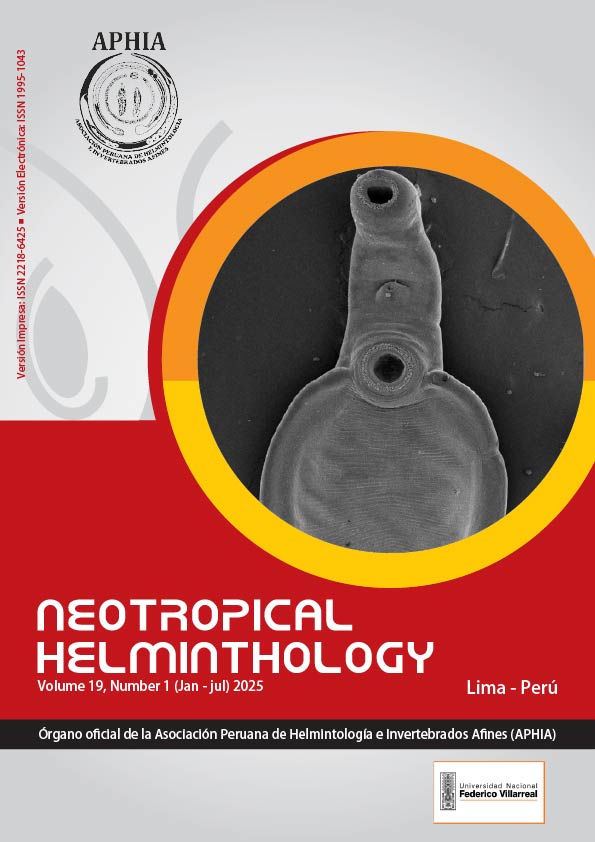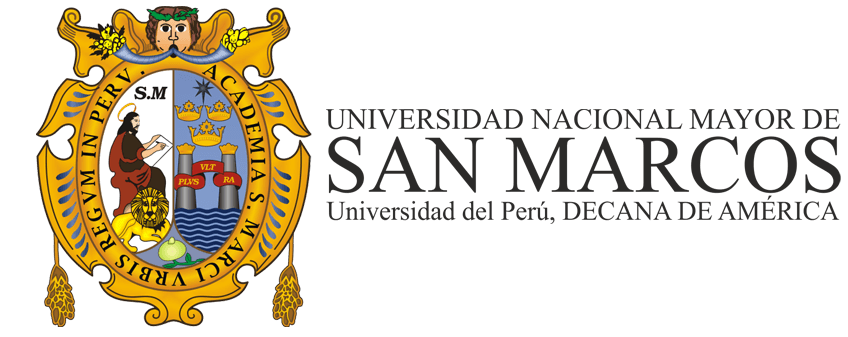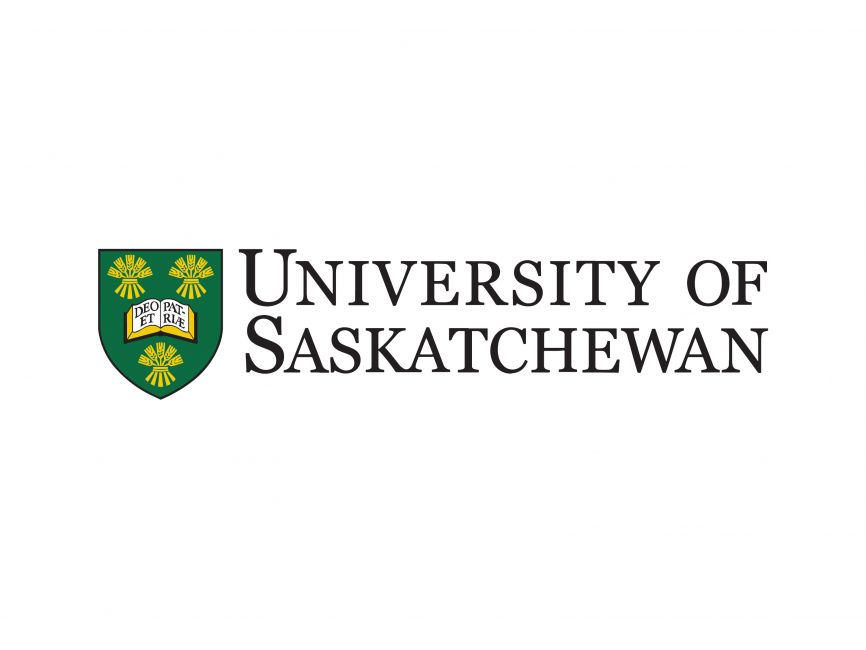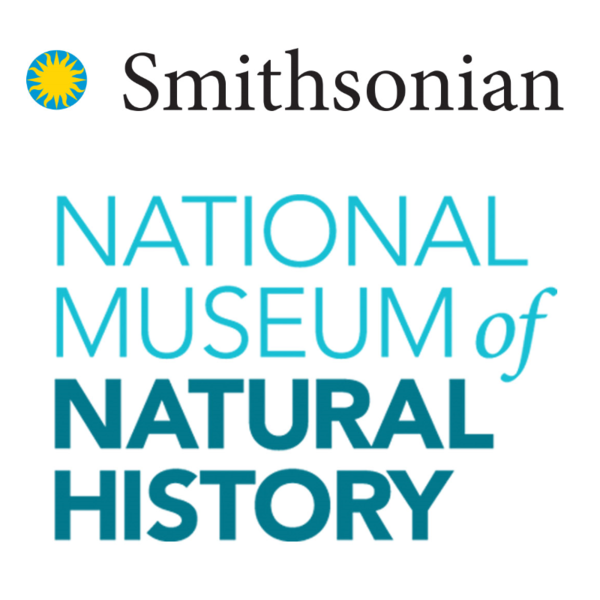PHYSA MARMORATA (MOLLUSCA: PHYSIDAE) AS INTERMEDIATE HOST OF ECHINOSTOMA EXILE (TREMATODA: ECHINOSTOMATIDAE) IN BRAZIL
DOI:
https://doi.org/10.24039/rnh2012621020Keywords:
cercariae, experimental infection, snails, trematodes.Abstract
Echinostome cercariae with 45 collar spines were found in Physa marmorata Guilding, 1828 collected in a water body located in Belo Horizonte, Minas Gerais, Brazil. Metacercariae were obtained experimentally in Biomphalaria glabrata (Say, 1818) and used to perform the infection of Columba livia Gmelin, 1789. Adult parasites recovered in the small intestine of the pigeons at 14 days after infection were identified as Echinostoma exile Lutz, 1924. The morphology of cercaria of E. exile is described for the first time and P. marmorata is reported as the natural first intermediate host of the parasite.
Downloads
Published
How to Cite
Issue
Section
License
Copyright (c) 2012 Neotropical Helminthology

This work is licensed under a Creative Commons Attribution-NonCommercial-NoDerivatives 4.0 International License.
OBJETO: El AUTOR-CEDENTE transfiere de manera TOTAL Y SIN LIMITACIÓN alguna al CESIONARIO los derechos patrimoniales que le corresponden sobre la (s) obra(s) tituladas: xxxxxxxxxxxxxxxx, por el tiempo que establezca la ley internacional. En virtud de lo anterior, se entiende que el CESIONARIO adquiere el derecho de reproducción en todas sus modalidades, incluso para inclusión audiovisual; el derecho de transformación o adaptación, comunicación pública, traducción, distribución y, en general, cualquier tipo de explotación que de las obras se pueda realizar por cualquier medio conocido o por conocer en el territorio nacional o internacional.
REMUNERACIÓN: La cesión de los derechos patrimoniales de autor que mediante este contrato se hace será a título gratuito.
CONDICIONES Y LEGITIMIDAD DE LOS DERECHOS: El AUTOR-CEDENTE garantiza que es propietario integral de los derechos de explotación de la(s) obra(s) y en consecuencia garantiza que puede contratar y transferir los derechos aquí cedidos sin ningún tipo de limitación por no tener ningún tipo de gravamen, limitación o disposición. En todo caso, responderá por cualquier reclamo que en materia de derecho de autor se pueda presentar, exonerando de cualquier responsabilidad al CESIONARIO.
LICENCIA DE ACCESO ABIERTO: El AUTOR-CEDENTE autoriza que manuscrito publicado en La Revista Neotropical Helminthology permanece disponible para su consulta pública en el sitio web https://www.neotropicalhelminthology.com/ y en los diferentes sistemas de indexación y bases de datos en las que la revista tiene visibilidad, bajo la licencia Creative Commons, en la modalidad Reconocimiento-No comercial- Sin Trabajos derivados –aprobada en Perú, y por lo tanto son de acceso abierto. De ahí que los autores dan, sin derecho a retribución económica, a la Asociación Peruana de Helmintología e Invertebrados Afines (APHIA), los derechos de autor para la edición y reproducción a través de diferentes medios de difusión.


 Numero 2 Volumen 19 - 2025 (versión Anticipada)
Numero 2 Volumen 19 - 2025 (versión Anticipada)














































